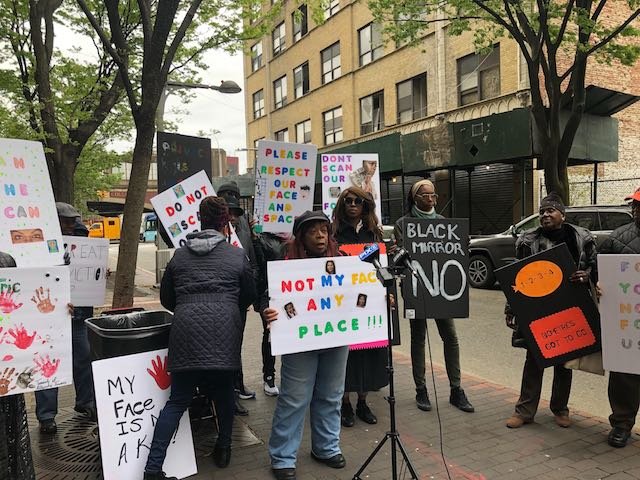Congress To Consider Bill Banning Facial Recognition From Public Housing
July 29, 2019, 4 p.m.
Across the country, civil liberties groups have been raising scrutiny on facial recognition, a largely unregulated and easily accessible software that has seen its application widen over the years.

Brooklyn tenants are fighting a plan by their landlord, Nelson Management, to install facial recognition technology at the entrances of their rent-regulated complex in Brownsville.
On the heels of a broadening debate over facial recognition software and its use on minority communities, a Brooklyn Congresswoman has introduced a bill to ban such biometric systems from all federally-funding public housing projects in the country.
Democratic U.S. Representative Yvette Clark introduced the bill, called the No Biometric Barriers Housing Act of 2019, into the House of Representatives last week. Her 9th district includes parts of Brownsville and lies just outside the Atlantic Plaza Towers, a rent-regulated roughly 700-unit complex where tenants have been fighting the landlord's efforts to install a facial recognition system.
Clark's proposal specifically seeks to prohibit the use of facial and other biometric recognition systems at rental developments that receive any kind of federal subsidies or grants. That would include 325 New York City Public Housing Authority complexes as well as project-based Section 8 housing and rental complexes that receive federal funding for the disabled and elderly.
#FacialRecognition tech. does not have a place in public housing given its biases toward women & POC. It's why I put together legislation to ban it from public housing. Today along with @AyannaPressley & @RepRashida we introduced the No Biometric Barriers Housing Act of 2019. 👊🏾
— Yvette D. Clarke (@RepYvetteClarke) July 25, 2019
In addition to facial screening software, the bill also makes it illegal for federally-assisted housing complexes to collect other types of biometric data, including fingerprint and voice activation systems.
Across the country, civil liberties groups have been raising scrutiny on facial recognition, a largely unregulated and easily accessible software that's seen its application widen over the years, from government to private sectors. In addition to privacy concerns, critics have pointed to studies that show facial recognition software to be inaccurate when used on people of color.
In May, San Francisco became the first city to ban the use of facial recognition technology by local agencies. Somerville, Massachusetts and Oakland, California are among those that have followed suit.
State legislators in New York are currently weighing a bill introduced by State Senator Brad Hoylman and state Assemblywoman Latrice Walker that would prevent all residential landlords from using facial recognition.
Meanwhile, New York City has tacitly condoned the use of facial recognition in city-funded affordable housing projects. Back in February, the city’s Department of Housing Preservation and Development, the New York City Housing Development Corporation and the private developer Omni New York announced that a 154-unit affordable housing complex in the Bronx would include a “state of the art facial recognition system." The apartments are designated for low-income tenants and homeless veterans.
At Atlantic Plaza Towers, the landlord, Nelson Management, is required to seek approval to install facial recognition from the state's Homes and Community Renewal (HCR) agency, which oversees rent-regulated housing. According to an HCR spokesperson, the application is still pending review.
The request to use facial recognition at Atlantic Plaza Towers was the first HCR has ever received. Since then, a Queens landlord of a rent-regulated building at 111-17 Northern Boulevard has also submitted a plan that would give tenants the option to enter the building using facial recognition.